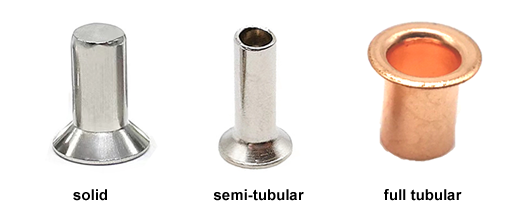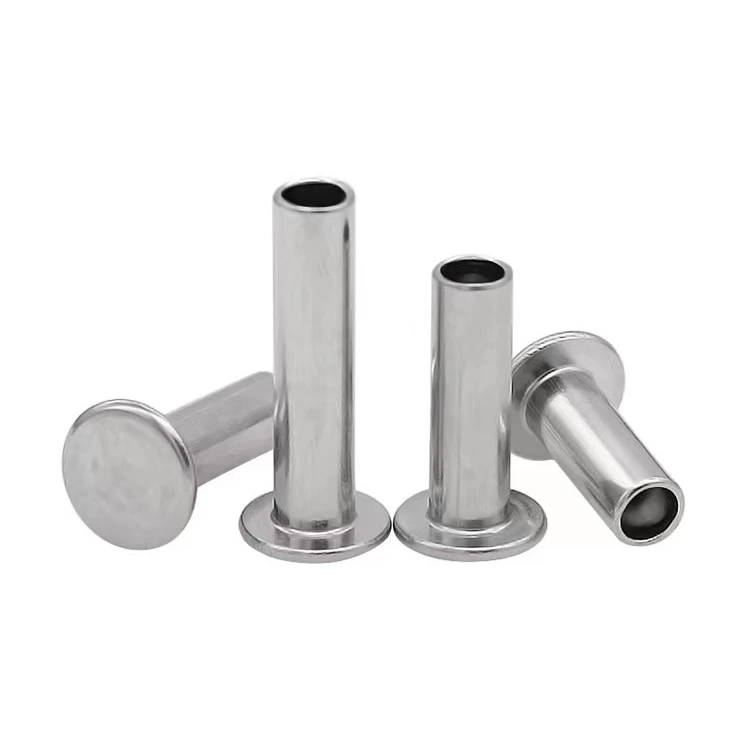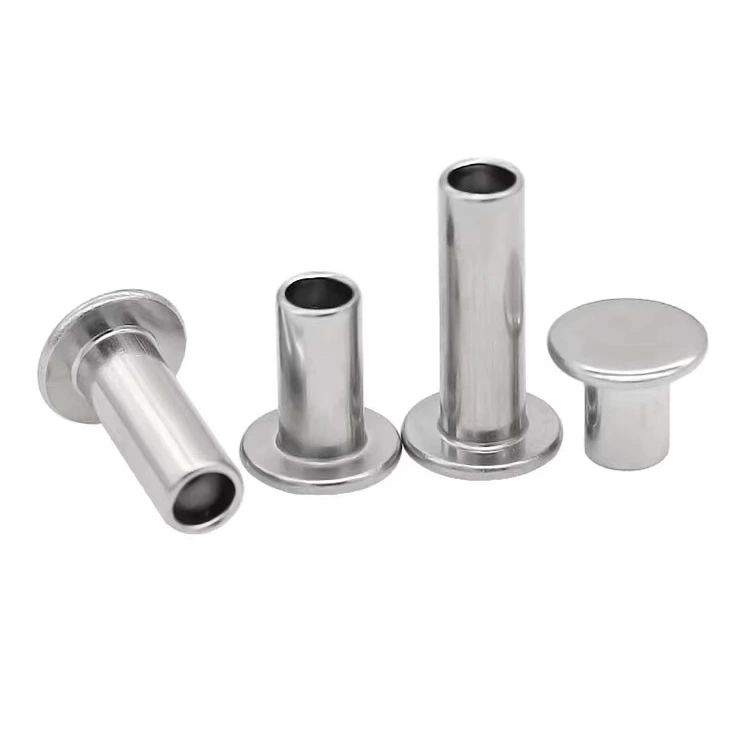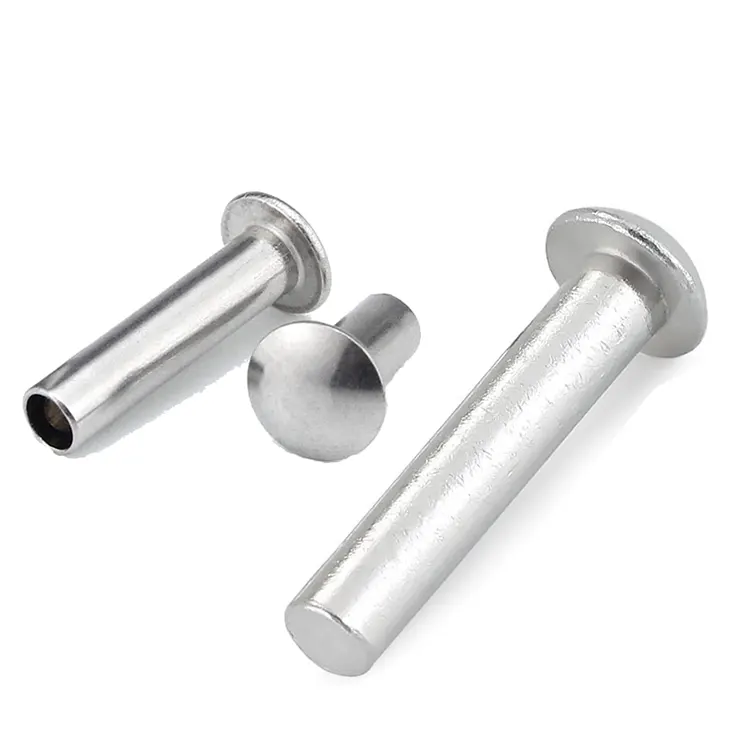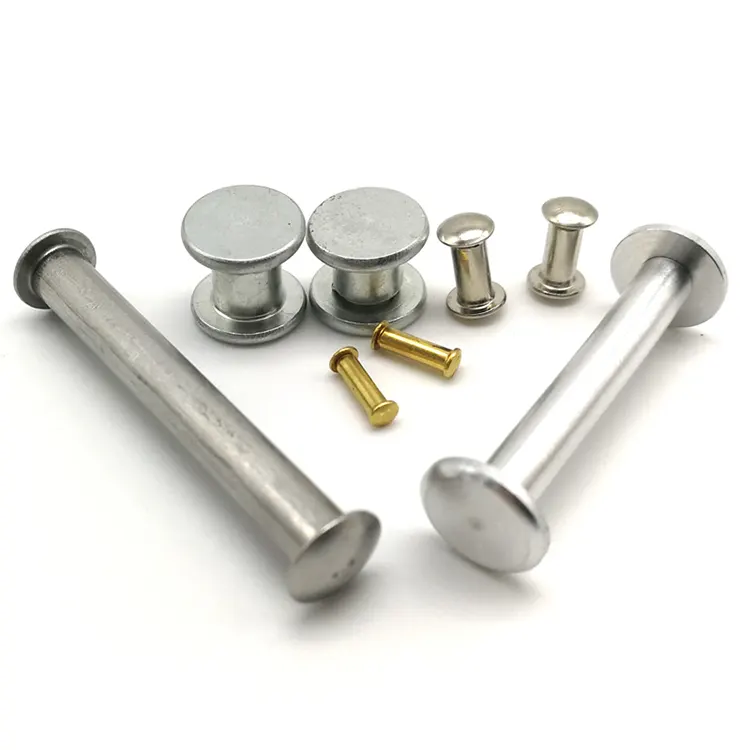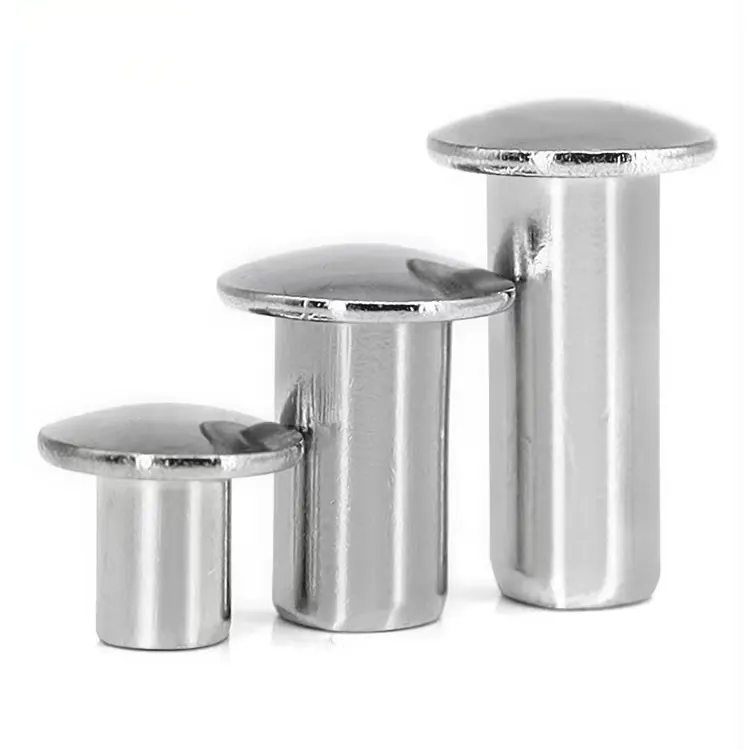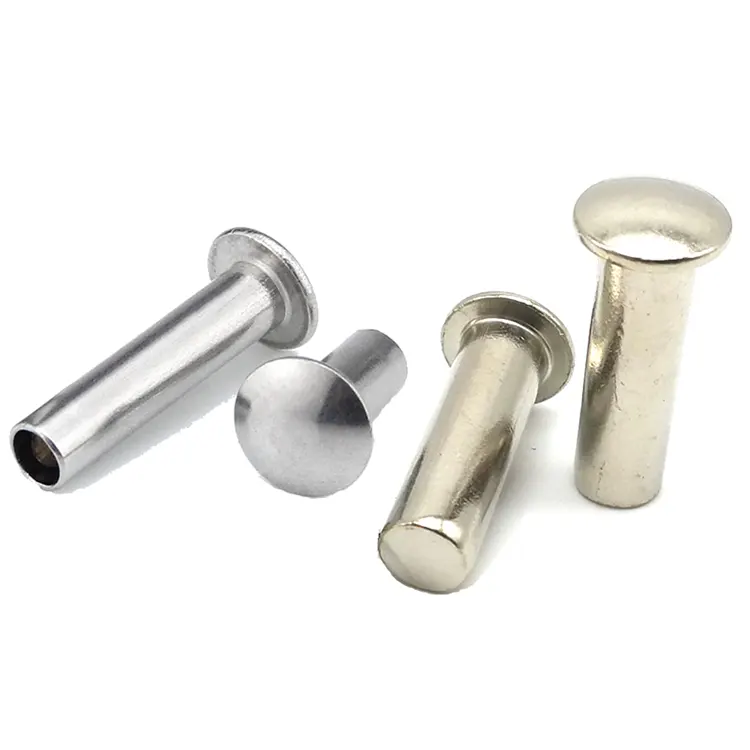Rivets
As one of professional manufacturer in China, Notin would like to provide you Rivets. And we will offer you the best after-sale service and timely delivery.
What is a rivet?
A rivet is a permanent mechanical fastener used to join two or more materials. Rivets work by inserting a metal pin into an aligned hole and deforming the end, creating a strong, secure, and durable connection. Unlike temporary fasteners like screws, rivets do not rely on threads, but instead form a permanent connection, making them ideal for applications requiring high strength, durability, and vibration resistance.
Classification of Rivets
Rivets are typically categorized by head shape, degree of hollowness, or material.
Based on head shape, rivets can be classified as flat head rivets, round head rivets, countersunk head rivets, mushroom head rivets, universal head rivets, truss head rivets, etc.

Based on degree of hollowness, rivets can be classified as solid rivets, semi-tubular rivets, or full tubular rivets.
Based on material, rivets can be classified as brass rivets, stainless steel rivets, steel rivets, aluminum rivets, copper rivets, etc.
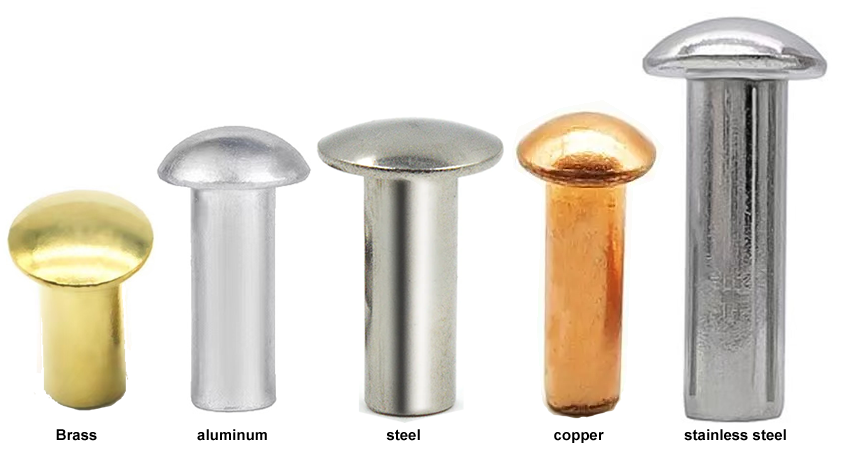
What surface finishes are available for rivets?
Rivet surfaces are typically treated with rust-proofing treatments, primarily electroplating, including zinc plating, nickel plating, chrome plating, tin plating, gold plating, and silver plating. Electroplating is a common rust-proofing method for rivets. It applies a layer of plating to the rivet surface through physical or chemical methods. The plating effectively prevents corrosion and rust, while also providing a certain aesthetic effect.
Another special surface treatment method is head coating. Head coating is performed after the rivet is electroplated. This allows for a variety of colors on the rivet head, achieving an aesthetically pleasing finish.
Aluminum rivets cannot be electroplated, but they can be anodized. Anodizing also allows for a variety of color options, but the unit price is higher than electroplating.
Rust-proofing the rivet surface is crucial, effectively extending the rivet's service life and ensuring a secure connection. Different rust-proofing methods are suitable for different environments and applications, so the choice should be tailored to the specific situation.
- View as
Aluminum Half Tubular Rivets
We're Nuote Metals, a rivet maker based in Dongguan, China, and we ship our rivets all over the world. Aluminum half tubular rivets are a really common type of mechanical fastener used in tons of different industries. They've got a solid head and a hollow tail, which makes for a quick and solid connection when you rivet them in place. These rivets are usually made from aluminum alloy, so they're light and don't rust easily.
Read MoreSend InquirySemi Tubular Rivets
Hey, let me tell you about these aluminum half hollow rivets. They're basically just little metal connectors made from aluminum. The cool part? They're designed with a partial hollow space that doesn't go all the way through. One end comes ready with a head, and you just use a special tool to tap the other end - that makes it spread out and hold things tight. It's like getting the strength of solid rivets with the easy installation of hollow ones. Perfect when you need things light but sealed tight. And aluminum? It's light, won't rust, and stays strong.
Read MoreSend InquiryUniversal Head Rivets
A universal head rivet is a type of mechanical connection component in the rivet classification system. Its head has a flat arc-shaped structure and is suitable for joining materials such as thin metal sheets, leather, canvas, and wood. This type of rivet is fixed through cold or hot riveting processes and has the advantages of easy installation and cost-effectiveness in non-sealed pressure-bearing environments. Compared with similar products such as countersunk rivets, universal head rivets are more suitable for riveting thin metal sheets or non-metallic materials such as leather, canvas, and wood due to their protruding hemispherical head design.
Read MoreSend InquiryTwo Piece Rivets
Two piece rivets typically consists of two parts: a female rivet and male rivet. The female rivet has an inner hole at one end and a fixed end at the other. The male rivet, like a solid step rivet, fits into the inner hole of the female rivet. To use, first secure the female rivet to an object, then insert the male rivet into the female rivet and hammer it into place, thus joining the two objects. This design simplifies installation while providing reliable connection strength. Nuote Metals has 10 years working experience of these kind of two piece rivets, welcome to send us your drawing.
Read MoreSend InquiryTruss Head Rivets
Nuote Metals manufactures and sells truss head rivets. We are Located in Dongguan, China, and we have over 40 cold heading machines capable of producing a wide range of rivet specifications and types. We also offer custom rivets. Truss head rivets are a common riveted component, consisting of a shank, head, and tail. They are characterized by a large, flat head and a hollow or solid tail, providing excellent sealing and waterproofing properties.
Read MoreSend InquirySteel Round Head Rivets
Nuote Metals manufactures and sells steel round head rivets in a variety of finishes, including zinc plating, nickel plating, and Dacromet plating. Round head rivets feature a semicircular head shape, offering excellent tensile and shear strength, capable of withstanding heavy loads. The round head design allows the rivet to better conform to the connecting component during connection, improving joint stability and sealing.
Read MoreSend InquiryWhat are the advantages of rivets over other fasteners?
1. Ease of Installation
Rivets are fast to install, and even fully automated for high-volume applications, resulting in a simple and efficient operation process.
2. Connection Reliability
The riveting process is standardized, with strict quality control, resulting in highly stable connections. Visual inspection allows for quick verification of connection quality.
3. Vibration and Impact Resistance
Rivets connect through deformation or interference fit, providing strong clamping force and excellent vibration resistance, capable of withstanding vibration and shock.
4. Low Cost
Rivets are easy to install and can be fully automated, saving significant labor costs.
What are the advantages and disadvantages of rivets made of different materials?
Aluminum Rivets
Advantages: Lightweight, reduces overall product weight, low cost, suitable for general civilian applications.
Disadvantages: Low tensile and shear strength, unsuitable for high-strength workpieces, prone to electrochemical corrosion when in contact with metals such as stainless steel.
Stainless Steel Rivets
Advantages: Strong corrosion resistance, high hardness, suitable for high-strength workpieces (such as marine equipment)
Disadvantages: Higher cost, typically more expensive than aluminum rivets of the same specification.
Brass and Copper Rivets
Advantages: Excellent conductivity (such as connecting electronic components), good corrosion resistance.
Disadvantages: Higher cost, more difficult to process.
Steel Rivets
Advantages: High hardness, high connection reliability, and wide applicability.
Disadvantages: Compared to other materials, iron rivets are more prone to rusting.
What are the main applications of rivets?
Rivets have a wide range of uses, from small items like a pair of scissors to large items like airplanes and ships, as well as in high-precision medical applications.
Industrial Manufacturing
Rivets are used in a wide variety of industrial fields, wherever there is a need to connect two or more materials.
Electronics
Rivets secure heat sinks and chips, providing both vibration damping and noise reduction, and are widely used in the cooling systems of electronic products such as computers and mobile phones.
Automotive
Rivets are widely used to connect components of automobile bodies and chassis, such as doors and hoods. Their lightweight and corrosion-resistant properties make them an indispensable joining method in automotive manufacturing.
Aerospace
In aircraft manufacturing, rivets are used to connect different fuselage components, such as wings and tailplanes. Millions of rivets create high-strength, corrosion-resistant joints. Aluminum and titanium alloy rivets are often used to connect components of corresponding materials, ensuring stability in extreme environments.
Rivets are used everywhere. The above examples only represent a small number of their applications. We see rivets everywhere in our daily lives, such as on scissors, folding beds, and strollers etc. Rivets can be customized to different sizes and materials depending on the application.
Nuote Metals has specialized in the rivet industry for over a decade. Our factory is located in Dongguan, a city known as the "World Factory," a city with a developed industry and convenient transportation. This allows us to respond quickly when acquiring raw materials and supporting surface treatments, meeting our customers' needs for quick access to samples and bulk orders. We produce 10 million rivets daily and have molds of various specifications, allowing us to produce rivets as small as 0.8mm and as large as 10mm. We welcome your inquiries and visits.






